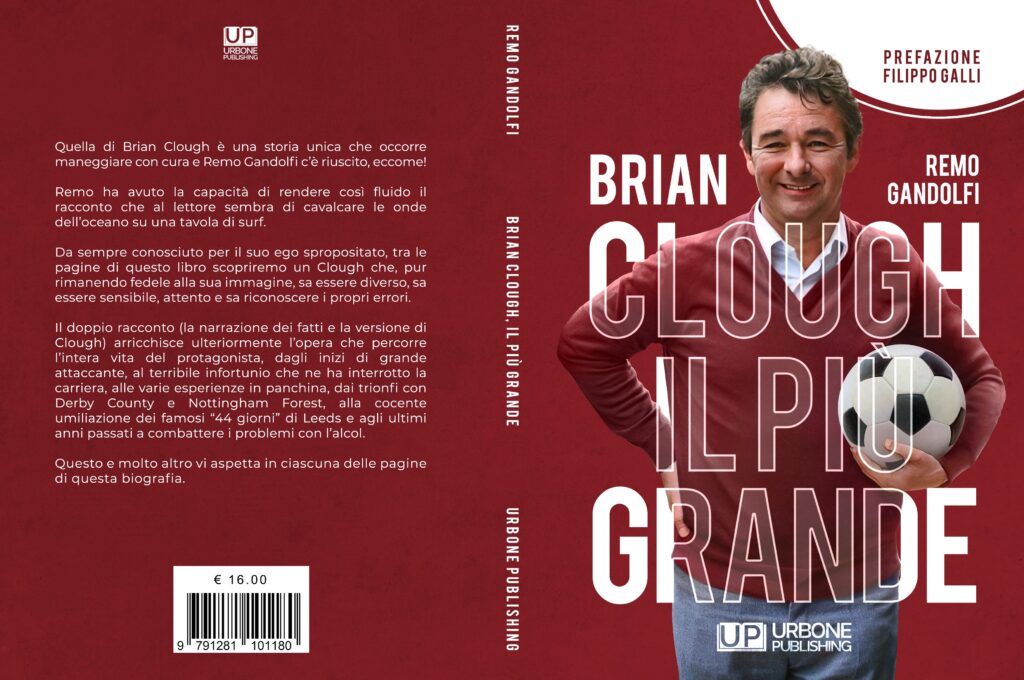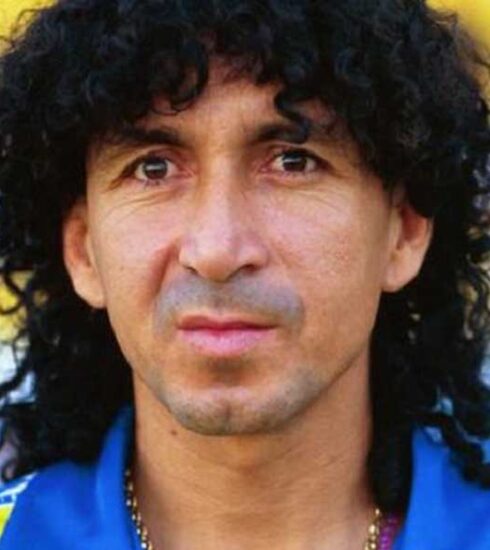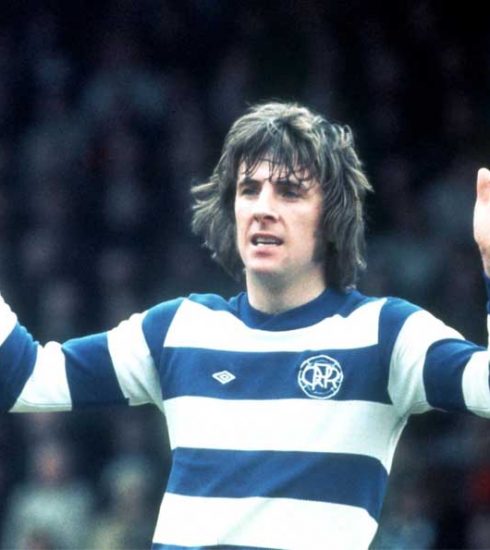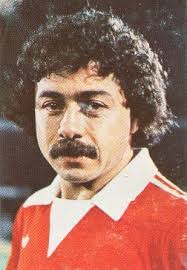BRIAN CLOUGH: The broken career of a great striker



Many are familiar with Brian Clough’s exploits as a manager. What he managed to do at Nottingham Forest, a classic provincial team languishing in the depths of the English Second Division upon his arrival, many know. Two Champions Cups won, one First Division (the current Premier) championship and several trophies.
What not everyone knows, however, is that Brian Clough was a formidable striker who was dealt a bad hand by fate at the best moment of his career.
It was Boxing Day 1962.
‘Boxing Day’ as they have always called it in the UK.
‘Boxing Day’ for the ancient custom of the gift that the wealthier classes offered to the underprivileged.
Football has always been played on that day in the UK and until a few years ago it didn’t matter much if it fell on a Friday. It was still played and it was also played the next day, like all Saturdays in British football.
On that day Sunderland, the top team in the English Second Division, await Bury at their ground.
Sunderland’s Roker Park is packed.
The pitch conditions, however, are terrible.
There is an icy wind and alternating downpours of rain and hail.
The pitch is frozen in places and muddy in others.
In essence: it is unplayable.
In Middlesbrough, which is just over 40 km from Sunderland, there are exactly the same conditions.
And indeed the match is cancelled.
In Sunderland, however, the game is still played.
The ‘Black Cats’ have been fighting for several seasons to return to the First Division.
In the previous season they finished third, just one point behind Leyton Orient, one of the two teams promoted to the First Division that season. (The other was the Liverpool of the great Bill Shankly).
Even this season it looks like a three-way fight for the two good places to return to the elite of English football. With Sunderland there are Chelsea and Stoke City, but also Leeds United and Middlesbrough themselves are definitely competitive.
Bury are an excellent team, not far behind in the standings, and a win is crucial for the men in red and white shirts.
At the centre of their attack they have a real ‘bomber’.
His name is Brian Clough and at 27 years of age he is in the middle of his psycho-physical maturity.
He was bought at the beginning of the previous season by one of Sunderland’s two great rival teams: Middlesbrough (the other being Newcastle) where Clough had managed to find the way to the net with impressive continuity: 204 times in 222 games.
That season he had already ‘stamped’ 24 times in 23 games.
On Boxing Day there was little of that in the first few minutes.
It is already difficult to stay on your feet and being able to control a ball decently is a real feat.
Shortly before the half-hour mark, however, comes the first big chance of the match.
There is a long throw in from the back by Len Ashurst, one of Sunderland’s two central defenders with whom Clough has an almost telepathic understanding.
He knows Ashurst’s throws are powerful and accurate.
Clough steals the time from the opposing defenders and when the ball comes to him he is heading into the net, alone, towards the opponent’s goal.
On him dives in desperation Chris Harker, the Bury goalkeeper. Brian Clough stretches his stride, touches the ball a moment before the goalkeeper intervenes … who with his whole body goes to impact on Clough’s right leg.
The Sunderland number nine falls ruinously to the ground, even hitting his head on the pitch.
His face is a mask of mud.
But that is not what is worrying.
Clough drags himself on the ground, tries to get up but his right leg can’t get off the ground.
“Get up and stop making a scene, you bastard Clough!” yells Bob Stokoe, Bury defender, at him.
Brian Clough is carried out on a stretcher.

The doctors’ verdict is devastating: rupture of the cruciate ligament and medial collateral ligament.
At the time it means the word ‘end’ on a career.
Clough does not give up.
Three months in plaster, a year and a half of re-education, hours in the gym and swimming pool.
“I have to get back on the pitch. Playing football is the only thing I know how to do.”
Clough will make it, two years later.
Three games and then he will have to say no more.
He is the ghost of the great striker he was before the injury.
The one who even managed to play two games for the England Lions’ national team without ever having played a game in the top flight.
… ironically the only three games he played in the First Division were the very last three, even managing to score a goal.
ANECDOTES AND CURIOSITIES
The edgy, egocentric character that has always characterised Brian Clough in his phenomenal coaching career has always been a constant in his personality.
At Middlesbrough, he managed to antagonise almost all of his teammates due to a proud, outspoken and decidedly narcissistic character!
He quarrelled furiously with his teammates and defenders were often the target of his tirades.
Although he scored an average of over forty goals per season, his goals were never enough for ‘Boro’ to return to the top division because of a defence that was making water everywhere.
The high point came after a ‘six to six’ against Charlton after which Clough asked his teammates “you tell me how many goals we have to score to win a fucking game!”
His transfer request that every summer arrived on the desk of Bob Dennison, his manager at Middlesbrough, was finally granted in July 1961.
Despite the predictions and expectations, however, no big First Division club arrived, but ‘only’ Sunderland, a club that was certainly more organised and better equipped.
In that 1962-1963 season in which they lost their man-goal in the middle of the championship, the ‘Black Cats’ finished second in the table on equal points with Chelsea … but lost out on promotion due to goal difference …
About Brian Clough’s very high level of self-confidence there is little doubt.
He tells his attacking partner at Middlesbrough Alan Peacock that with Clough the division of tasks in the offensive phase of the game were always very clear.
“You move up the flanks. In the centre I stay there. Because you have to know that it’s from the centre that you score goals … not from the flanks!” was the phrase Clough liked to repeat to him practically before every game.
The two matches with the England national team did not go as Brian Clough had hoped. In the first, the one against Wales, tension has, by his own admission, the upper hand.
‘I was tense from the days before. I was already twenty-four years old and I had been waiting for that chance all my life,’ recalls Clough in one of his biographies.
But in the second, against Sweden at Wembley, only bad luck prevented Clough from finding the way to the net.
The match ended in a victory for the Swedish vice-world champions by three goals to two, but it was Clough who had the chance in the final minutes of the match to score the equaliser.
On a backward pass from a Swedish defender towards his own goalkeeper he ‘read’ the play before anyone else did.
His shot was strong and precise and went past Bengt Nyholm, the Swedish goalkeeper.
… hitting the crossbar and going back in. However, Clough was the first to pounce on the ball but ended up tripping over the ball, which was crushed under his body just inches from the goal line.
That was to be Brian Clough’s last game with the England Whites.
“Every so often I see that action again and I can’t help but think what would have changed if that ball had gone in,” Clough will often recall about that episode.
The criticism of his team-mates during his time at Middlesbrough was not limited to their inability to defend their own goal. They went much further.
Clough went so far as to accuse several of his teammates of ‘selling’ matches by betting large sums of money on their team’s defeat that he even got into a physical confrontation with some of them. This obviously did not increase his popularity in the locker room … although he was not the only one around Middlesbrough who thought the same …
At the age of twenty-nine Clough has to leave football.
He is married and the first of his three children, Simon, has already been born, followed later by Nigel (an excellent striker for Nottingham Forest and Liverpool) and Elizabeth.
“I didn’t know how to do anything but play football. They were terrible months for me and my family. Then came the offer from the chairman of Sunderland to coach a Sunderland youth team. It only took a few weeks to realise that this was where I belonged, that I would be at least as good at coaching as I was at playing. When in later years people asked me about the pressure I felt before a final or a deciding game I always said that was a pleasure. The pressure is when you don’t know what to do with your life, you don’t have a job and you have a family to support’.
In October 1965 Brian Clough was offered the post of manager of Hartlepools United, last in the table in the last professional league (the Fourth Division) of English football.
In the following fifteen years Brian Clough would win two Champions Cups with Nottingham Forest, two First Division championships with two different teams (Derby County and Nottingham Forest) and another dozen trophies.
… but that, as some would say, is another story …







